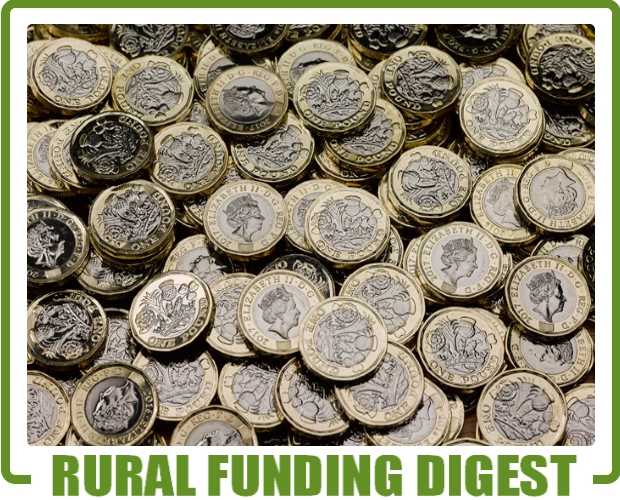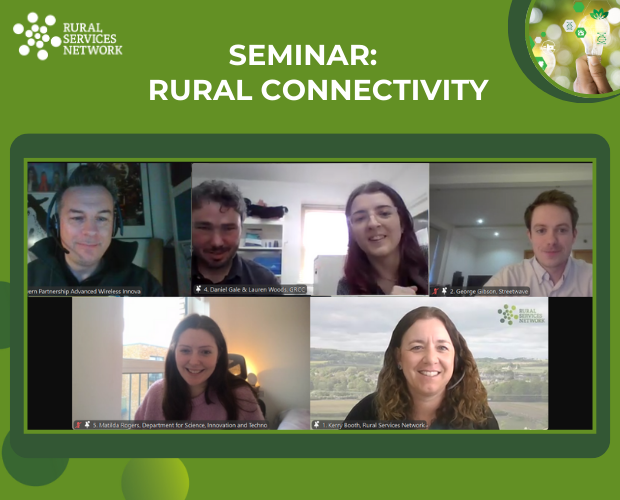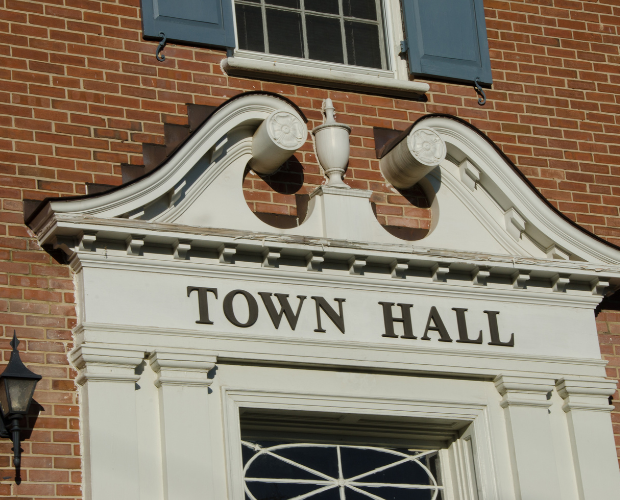T: 01822 851370 E: [email protected]
Hinterland - 22 June 2020

In hinterland this week, coronavirus and its impact on farmers, bringing cash back to rural settings, long term impacts of the pandemic on the NHS overall, forget the covid-19 tracing app (for now), a “told you so” story linked to the Lancet and finally staycation lists arising from the potential 4th July re-opening of the hospitality industry.
* * *
Most farms bracing for profit losses post-coronavirus, finds survey
This article suggests a significant disruption but less terminal outcomes from coronavirus for farm businesses than I might have expected. It tells us:
An overwhelming majority of farming and rural businesses are bracing for heavy profit losses following the Covid-19 pandemic, according to a new survey.
Property consultancy Knight Frank has launched its 10th Rural Report today (19 June), revealing the impact of the coronavirus on UK rural firms.
Surveying hundreds of farmers and other rural stakeholders, 80% said they expected profits to fall in 2020, with 35% saying profitability would be affected 'significantly'.
While firms relying mostly on traditional income sources said they would be less affected, the ones that largely depend on tourism or leisure expected to be badly hit.
Just under 40% of those taking the survey said they had shut down elements of their businesses, while a similar proportion said tenants were struggling to pay their rents.
Four in 10 confirmed they had furloughed staff as part of the government’s coronavirus job retention scheme, but only 3% reported making redundancies.
However, only 8% of respondents believed their long-term viability was under threat – and many were still making plans to expand or diversify their businesses, including tapping into concerns about the environment.
Half of respondents plan to plant more trees, while almost 40% expect to dedicate more of their land to conservation.
Clive Hopkins, head of farms at Knight Frank, said Covid-19 had 'ruthlessly exposed' financial vulnerabilities within the rural sector.
Eight UK communities to trial cash promotion schemes
I like this idea of keeping cash flowing in communities – although it doesn’t tell us where the neighbourhoods are my guess is they are mainly rural. It tells us:
Eight locations across the UK have been chosen to test solutions that will help communities retain free access to cash, as the nation shifts to an increasingly cashless society.
The launch of the pilots follows the publication of the 2019 Access to Cash Review, which found that 17% of the UK population rely on cash, with vulnerable communities, including the poor and those in rural areas, at particular risk from reduced access to cash.
The Covid-19 pandemic has further heightened the problem, with many high street businesses spurning cash payments in favour of contactless transactions.
Natalie Ceeney, who led the Access to Cash review and is now in charge of the pilot projects, says: "The world is changing - we can't just magic back our old bank branch and ATM infrastructure. Instead, we need to use innovation to develop new solutions as well as harness tried and tested approaches to meet people's needs."
The aim of the pilot schemes is to create new approaches to current challenges, which include helping local shops to give cashback, introducing shared bank branches, subsidising bus services to surviving branches, and the opening of local cash deposit centres for merchants.
Stephen Jones, CEO of UK Finance, says: "While our latest data shows that people are increasingly choosing to pay digitally, the banking and finance industry is committed to ensuring that access to cash remains free and widely accessible to those who need it.
“The impact of the Covid-19 lockdown in recent months has shown the importance of continuing to do so, and with retailers and businesses reopening their stores this week the sector is playing a central role in helping people to pay for the goods and services they need using the method of their choice.”
https://www.finextra.com/newsarticle/36031/eight-uk-communities-to-trial-cash-promotion-schemes
After coronavirus, the NHS's ability to provide care will be reduced, experts warn
A salutary indication of how things are going to change in the NHS for rural dwellers particularly methinks. This article tells us:
But living alongside Covid-19 for the foreseeable future will mean stark choices. Even if a second wave is prevented, resuming routine hospital, primary care and dental services with such an infectious virus still circulating is going to be all but impossible without a vaccine.
A major problem will be the challenges of infection control: swabbing, testing and isolating patients before surgery, creating time for changing PPE between patients, allowing additional time between operations or treatments to deep clean or allow air changes in operating theatres or dentists’ consultation rooms.
Even if a more rapid test can be developed, the impact on a system used to running with very little spare capacity will be formidable. Even before the crisis, the number of acute and intensive care beds per 1,000 population was lower than most OECD countries. There are also challenges of supplying and distributing PPE to the frontline.
The NHS has large numbers of older hospital buildings, with shared accommodation and narrow corridors. Many hospitals and GP surgeries do not have waiting areas that allow for social distancing, and A&E departments before the pandemic were significantly overcrowded. Even if these difficulties can be overcome, the NHS will need to make sure it has enough beds and ventilators for a possible second wave.
The staffing problems will be profound. Workers in high-risk categories may need to be removed from frontline duties, worsening longstanding staffing shortages. Staff who remain will have to make big changes to their day-to-day work, changing daily practices like ward rounds and creating time for testing and PPE.
The combined effect: a reduction in the NHS’s ability to provide care. Waiting lists will lengthen, non-urgent procedures will be deprioritised, and patients will find it harder to get routine appointments. The big question facing politicians is how far the public will be prepared to accept such limitations on an NHS they have already sacrificed so much to protect.
NHS Covid-19 contact-tracing app for UK will not be ready before winter
I do worry about Matt Hancock and his predilection for high risk statements – this one seems to be unravelling. This story tells us:
The mobile phone contact-tracing app to tell people they may have been exposed to Covid-19, once a central part of the government’s response to the pandemic, will not be ready before the winter, a health minister has said.
Lord Bethell of Romford, the minister responsible for the smartphone app, said that it was not a priority for the government at the moment.
Speaking to the MPs on the Commons science and technology committee, Lord Bethell, the minister for innovation at the Department of Health and Social Care, also said the pilot scheme on the Isle of Wight had shown that people prefer to be contacted by a human being with the bad news, rather than by text message or email.
“We’re seeking to get something going for the winter, but it isn’t a priority for us,” he said.
In response to questions from the MP Graham Stringer, who said that “sounded like an argument against introducing it at all”, Lord Bethell said it was still the government’s intention to introduce the app.
The health secretary, Matt Hancock, said at the start of May that the app would be rolled out nationally in “mid-May”. When asked repeatedly about the delay, the government has insisted it is only a few weeks away.
https://www.bbc.com/news/uk-53065306
The Lancet’s editor: ‘The UK response to coronavirus is the greatest science policy failure for a generation’
A very worrying and telling truth to power article which explains a number of the systems failures underpinning the current impacts on particularly vulnerable people living in rural areas. It tells us:
“Individually, they’re great people,” he says. “I’m not criticising individuals, but the system was a catastrophic failure.” As editor of the Lancet, he’s particularly aggrieved that the series of five academic papers the journal published in late January first describing the novel coronavirus in disturbing detail went unheeded.
“In several of the papers they talked about the importance of personal protective equipment,” he reminds me. “And the importance of testing, the importance of avoiding mass gatherings, the importance of considering school closure, the importance of lockdowns. All of the things that have happened in the last three months here, they’re all in those five papers.”
He still can’t understand why the government’s scientific advisers didn’t consult their counterparts in China. The world of medicine is a small one, he says, and everyone knows the people responsible for coordinating the Chinese government’s response. “These are people they could have literally sent an email to, or picked the phone up to, and said, ‘Hey, we read your paper in the Lancet, can it really be as bad as that? What is going on in Wuhan?’ And if they’d done that they would have found out that this was indeed as bad as described.”
He doesn’t know if such conversations took place, but he can’t see why, if they did, the response was so sluggish that the UK is second in the world, trailing only the much larger nation of the US, in the league of Covid-19 deaths. What he does know, from the published reports of Sage meetings, is that scientists were “trying to be as sensitive to economic issues as they were to health issues”. That, he says, “is a dangerous place to be” because it compromises the ability of the advisory group to protect health.
While the arena of public health is no stranger to heated disputes, it’s common for the antagonists to maintain a diplomatic front in public. Horton, who appeared on Question Time back in March and declared the government’s delay in locking down a “national scandal”, has never been shy about speaking out, but even by his own forthright standards, he seems to have abandoned all instincts for restraint.
And Finally
These are the most wish-listed UK staycation destination properties on Airbnb during lockdown
Some really interesting places to stay and positively surprising that Stoke on Trent comes top of the list!
Travel to certain destinations is banned or restricted and even venturing further than a few miles outside your home hasn’t been allowed – making UK staycations a hotly desired way to escape everyday life in lockdown.
That trend for at-home holidays is reflected in Airbnb’s list of the properties most wish-listed by Brits since lockdown began. The holiday home service notes that their list of most popular properties for 2020 is entirely different to the one from 2019, with attention shifting from beachfront Brazilian villas to cosy cabins closer to home.
https://metro.co.uk/2020/06/16/wish-listed-uk-staycation-destinations-airbnb-12858372/
About the author:
Hinterland is written for the Rural Services Network by Ivan Annibal, of rural economic practitioners Rose Regeneration. |
SIGN UP TO OUR NEWSLETTER
Sign up to our newsletter to receive all the latest news and updates.










